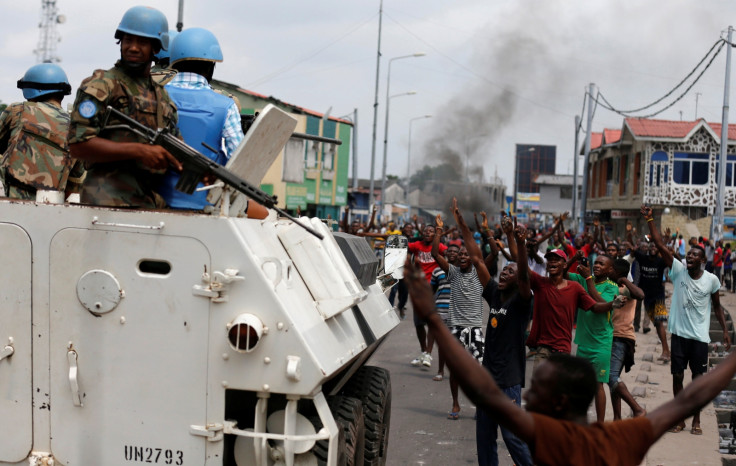Amid a rising death toll, global powers react as Kabila refuses to stand down from power
'We can't go on like nothing is happening,' said French Foreign Minister Jean-Marc Ayrault.
Global powers are reacting to Joseph Kabila's refusal to relinquish the presidency in the Democratic Republic of Congo (DRC).
Presidential elections were supposed to take place last month, and Kabila's mandate expired at midnight on 19 December. Critics accuse him of seeking to stay in power in defiance of the Congolese constitution, which sets a two-term limit.
His refusal to stand down has sparked protests in the vast African nation, which has never experienced a peaceful transition of power. At least 26 people have died with scores more arrested, although the tally from rights groups may reveal a much higher number.
The violent repression has stoked further tensions in a country where the population is clamouring for democratic elections. Over the course of four months, the Congo Research Group conducted a nationally representative opinion poll across the country. It revealed that Kabila would have been able to muster less than 8% of the vote, while 81.4% rejected the prospect of amending the constitution to allow Kabila to run for a third term.
As the country teeters on the brink of political disaster, the UK, US, Belgium, France, Germany and Canada have taken a hard stance against Kabila.

The UK's Minister for Africa, Tobias Ellwood, said he was "deeply disappointed that elections did not take place in the DRC in 2016" and that "Kabila and his government bear primary responsibility for this". He added that as a result, "the UK's relationship with the Congolese government will have to change." Read the full statement here.
Former colonial power Belgium also said its relations with Africa's largest copper producer would be "re-examined". Read the full statement here.
Republican Congressman Ed Royce vowed to work with Donald Trump's administration to build on the sanctions already imposed on a number of officials. He said: "By remaining in power, President Kabila is violating the DRC's constitution and the will of the Congolese people. Free, fair and timely elections are the way to ensure a peaceful future.
"I am pleased the Obama administration has heeded congressional calls to sanction Congolese officials undermining the democratic process. And I look forward to working with the Trump administration to build on these efforts," added Royce.
Meanwhile, Canada said it "deplores the failure to democratically transition power in line with the constitution" and said it will "review its relations with the Congolese government". Read the full statement here.
Kabila's overstay has prompted Germany to announce it has indefinitely postponed talks on development assistance, Reuters reported. "From now on, the Congolese government's scope for action will be restricted," the German foreign office said in a statement.
"The negotiations on development cooperation scheduled to take place next year will be postponed indefinitely. The German government reserves the right to take further steps," it added.
France's foreign minister, Jean-Marc Ayrault, called on the EU to re-evaluate its ties with the DRC and spoke of the very real dangers of a return to the past where millions died. "We must be clear: if nothing happens, the EU will have to reconsider the level of relations it has with this country," Ayrault told reporters in Paris.
"We can't go on like nothing is happening. We really want that this country doesn't fall into chaos, that it can be spared a civil war."
© Copyright IBTimes 2025. All rights reserved.





















